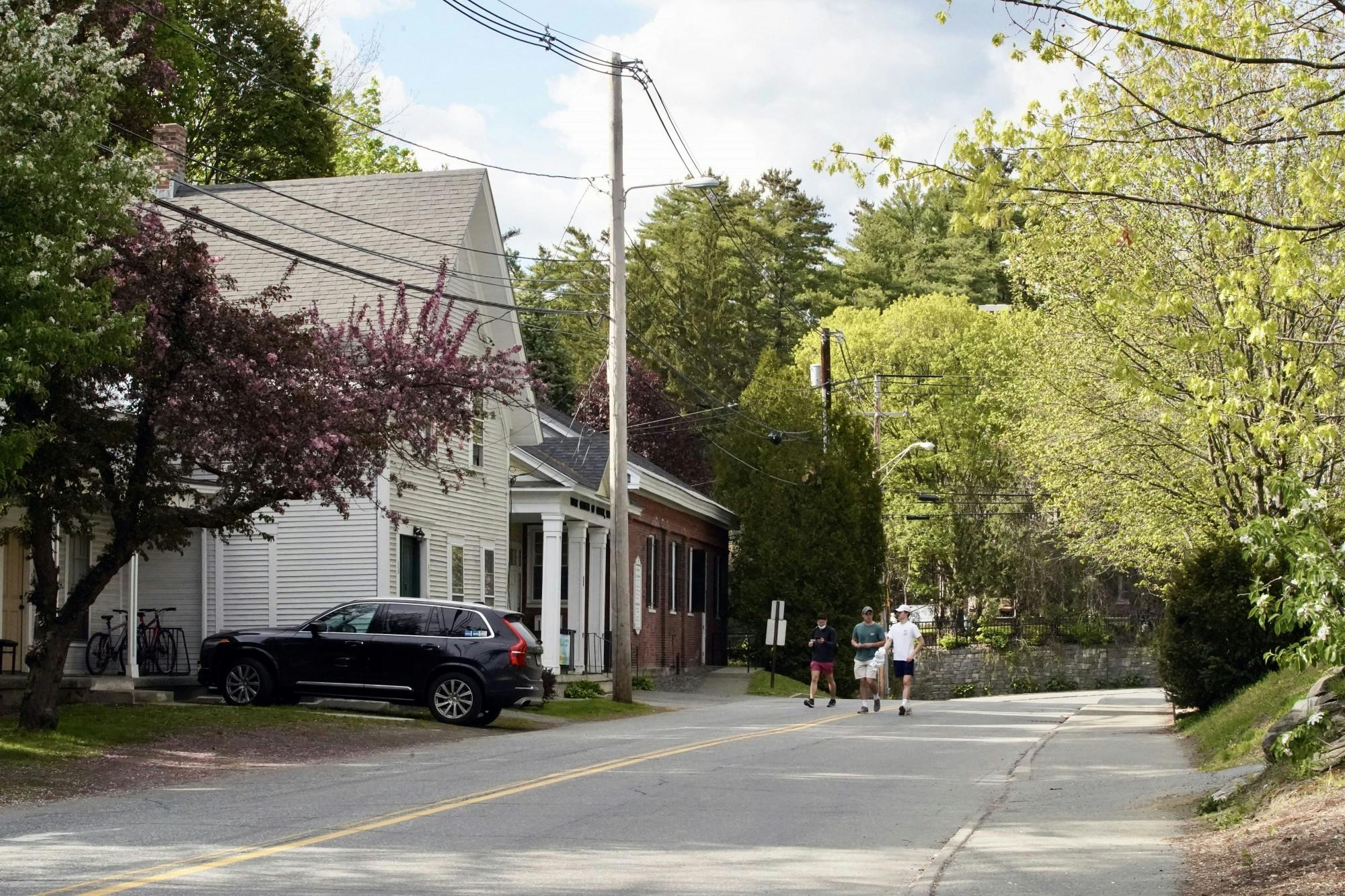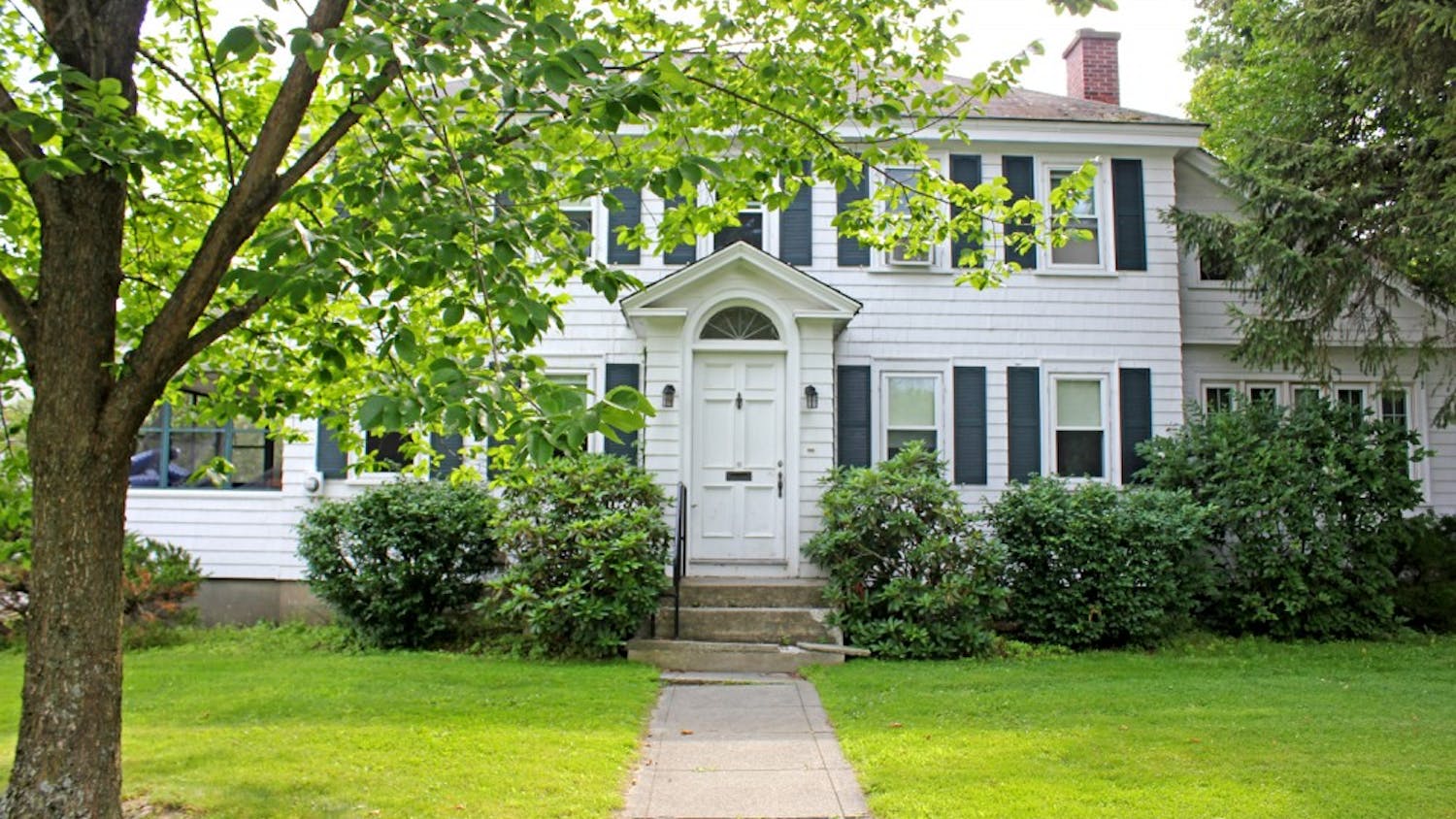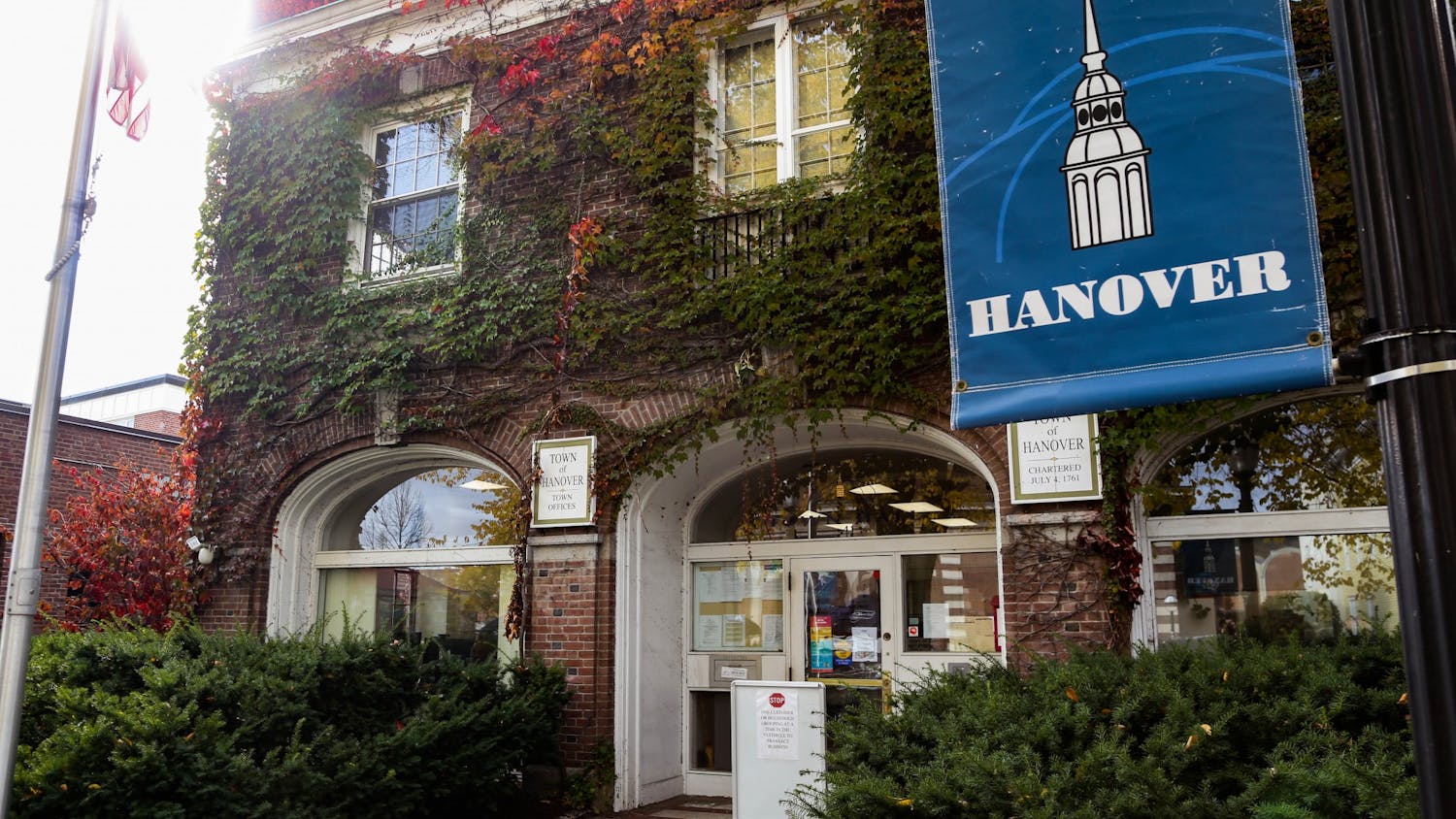This article is featured in the 2021 Spring special issue.
While all Dartmouth students are typically required to live in on-campus housing for their first year in residence, some students choose to live in off-campus housing in Hanover and surrounding towns later in their time at Dartmouth. In 2021, however, the number of students living off campus has increased significantly to nearly triple last year’s total.
In the decade before the pandemic the number of students living off campus in the Upper Valley was increasing slowly, according to data from the Office of Institutional Research. In the 2011-12 academic year, 335 students lived in off-campus housing, a figure that increased to 504 students by the 2019-20 academic year. The numbers of students living in Greek houses and affinity houses also increased marginally. Over that same time period, the number of students living in residence halls declined from 3,111 in 2011-2012 to 2,902 in 2019-2020.
During the 2020-21 academic year, the number of undergraduate students living locally off campus jumped to 1394, surpassing the 1,310 living in residence halls.
Jolin Kish, owner of Kish Consulting & Contracting, which manages leases primarily within a five-mile radius of Dartmouth’s campus, said that prior to the pandemic, undergraduate interest in off-campus housing had remained “steady” for the last 15 years. However, she noted that students have recently begun to sign lease agreements for housing earlier, especially students seeking housing for senior year.
“It used to be that students would have their leases [for senior year] signed by the end of sophomore summer, but now most places are taken by the end of sophomore winter,” Kish said. “To get the prime locations, students are competing with one another.”
Prior to the pandemic, most undergraduate students sought places within walking distance of campus for easy access to the facilities, Kish said, while most graduate students preferred to live further away from campus, where they could get a “nicer” lease at a lower cost.
However, during the pandemic, the number of undergraduate students signing off-campus leases increased “dramatically,” according to Hanover town manager Julia Griffin. She added that many undergraduate students also began to sign leases further away from campus in locations such as Lyme or Quechee, Vermont.
“We saw a tremendous upward pressure on the rental housing stock across the region,” Griffin said. “Even though they weren’t all allowed on campus, a lot of students wanted to be close by and take classes remotely with friends.”
Kish said that while undergraduate interest in off-campus housing increased, graduate student housing demand “plummeted,” as many graduate students chose to work remotely from home. She also said that all years of undergraduates — including some freshmen during winter term — had signed lease agreements.
Many students who chose to live locally off campus during the pandemic chose to do so because of COVID-19 restrictions in on-campus housing. Aditi Gupta ’23 said that she chose to live off campus this term in order to preserve a “halfway normal college experience.” She added that while managing the “logistics” of living off campus has been challenging, she has enjoyed living with her housemates.
“Originally I thought living with four other people would be too many, but now it feels like a perfect number of people,” Gupta said.
Katherine Lasonde ’23, who has lived off campus in Quechee since fall term, said that she wanted to live off campus in order to have a sense of “normalcy.” She added that while she would have preferred to live in a dorm this year, she tried to “make the best of the situation.”
“Living in Quechee, a 20-minute drive from campus, isn’t the same as living on campus,” Lasonde said. “It is still really nice to be able to live with friends and enjoy the experience.”
While on-campus housing is still at limited capacity, by fall term, these restrictions are likely to be lifted. In a May 13 email to the Dartmouth community, COVID-19 task force co-chairs Lisa Adams and Josh Keniston wrote that residence halls in the fall will return to full capacity, with a small number of rooms set aside for quarantine and isolation.
Both Griffin and Kish said that with capacity limits being lifted by fall, they expect undergraduate interest in student housing to return to pre-pandemic levels. Kish added that because most undergraduates value “proximity” to campus, most undergraduates are likely to return to living on or very near campus.
“Graduate students are also going to be returning to the area with labs and classrooms reopening, so they’re likely to return to places like Sachem Village and other locations further away,” Kish said.
Both Gupta and Lasonde said that they are considering living off campus in post-pandemic terms. Lasonde added that while she had a “great experience” in Quechee this term, she hopes to live closer to campus in the future.
“I’d prefer to live in Hanover close to campus, if possible,” Lasonde said. “However, given how much cheaper it is to live off campus, I’m not sure if I’ll ever go back to the dorms.”
Griffin said that she thinks it will be “important” for students to return to on-campus living, as the increase in demand in off-campus housing over the years has impacted the community. One of the issues she cited was the shortage of workforce housing resulting from students signing more leases in the area.
“A lot of the relatively affordable and modest housing in Hanover was being taken up by short term rentals during the pandemic,” Griffin said. “We’re already 10,000 housing units short in the entire Upper Valley, and students gobbling up housing is compounding that problem.”
In addition to the housing shortage, Griffin also mentioned that a lot of off-campus student housing is in “poor shape” due to neglect by both the landlords and their student tenants. She said that in recent years, some students have had to call town officials because of problems such as a lack of hot water or broken windows that their landlords did not respond to.
According to Griffin, student rental housing units have also had problems with overcrowding in recent years, a problem that stems from students attempting to “circumvent” Hanover’s zoning regulations, which prevent more than three unrelated people from living in a rental unit. She added that as a result of the overcrowding, students have been found to be living in unsafe conditions, such as students living in a basement with only one entrance or exit.
“We’re really fortunate that we haven’t had a major house fire or other incident in the rental units,” Griffin said. “When you start to overcrowd a unit, the chances of having a tragic event happen grow exponentially.”
In response to these problems, Griffin said that the town has discussed “beefing up” its rental housing ordinance to conduct annual inspections on rentals to both check for safety hazards and to combat overcrowding of units. While no formal ordinance has been proposed, she mentioned that many other college towns, such as Burlington, Vermont, have implemented annual inspections to “great success.”
“I also hope that the College will consider building more affordable on campus housing so we don’t have so many students living off campus,” Griffin said. “While some upperclassmen prefer to live off campus, a lot of students have to live off campus because they can’t afford room and board on campus.”
The recently announced Infrastructure Renewal Fund, created using additional distribution from the endowment, will be used in part to upgrade residence halls. In an April town hall, executive vice president Rick Mills said that the College will be discussing building additional student housing with the Trustees in July.




